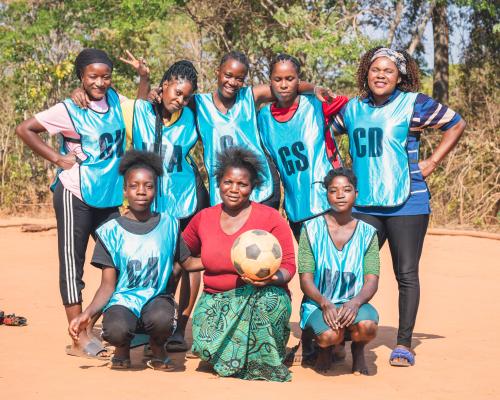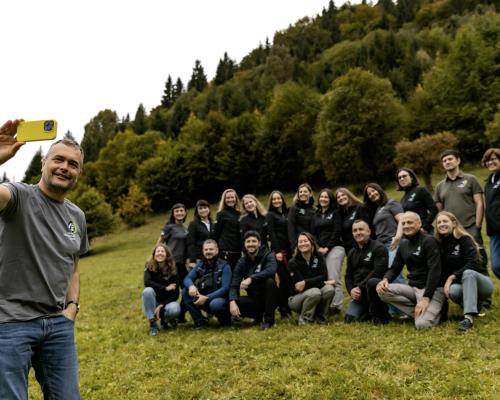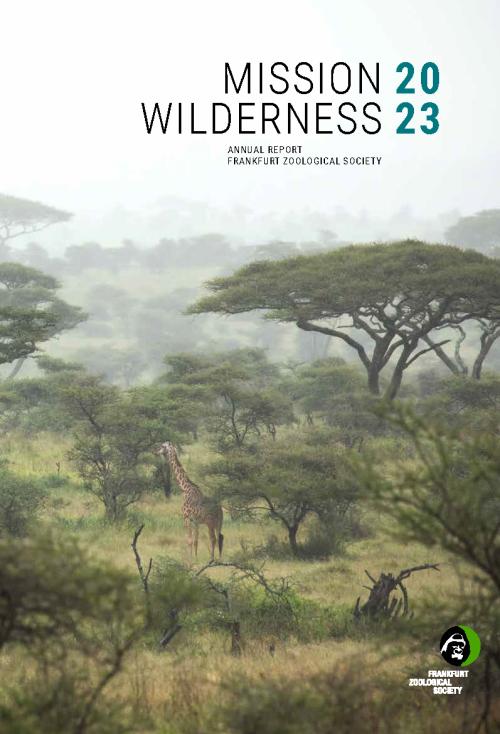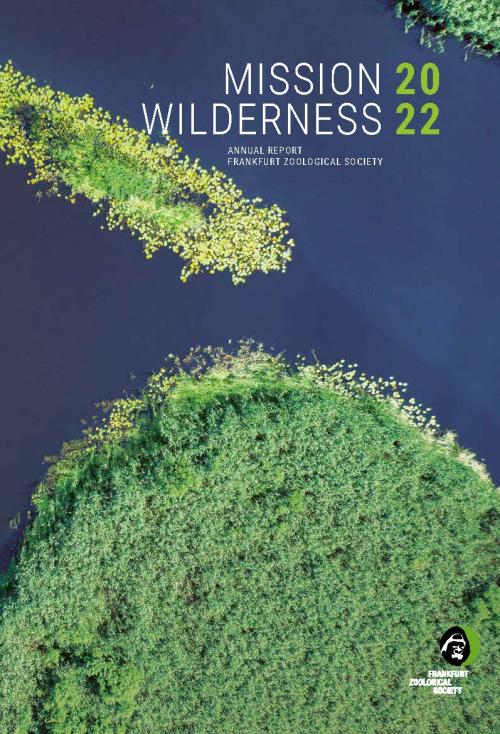Get insight into FZS’s work in 2017, and an outlook on the current situation in our 160th anniversary year, 2018, in this annual report.
Annual Report 2017
160 years ago, a group of dedicated Frankfurt citizens founded a society – the Frankfurt Zoological Society – with the aim of establishing a zoo for their city. 60 years ago this society gradually grew into something bigger, investing increasing amounts in projects aimed at protecting wild animals and their habitats. However, over the past six decades – a period during which Bernhard Grzimek’s “one-man-show” grew into a complex organisation with more than 300 employees worldwide – it is not only FZS that has developed out of all recognition. The challenges we face in the project countries have also grown in scale and complexity. Economic expansion, infrastructure development, agricultural intensification, increased extraction of natural resources, population growth and climate change are all factors that we have to deal with on a daily basis and that often seriously impair our efforts to conserve nature.
Looking back over the history of the FZS and reading old annual reports from 20 or 40 years ago, we encounter – alarmingly – almost identical stories to those featured today: poachers decimating elephant and rhino populations, highways being built in the middle of national parks, dam projects endangering unique wilderness regions. Yet we can also see just how many successes and positive achievements FZS has chalked up over the past 60 years with its nature conservation work, and how effective it has been in preserving diversity. Bearded vultures were returned to the Alps in 1986, and today more than 200 of these mighty birds are flying in Europe again. The Tanzanian island of Rubondo would not have become a national park without us 40 years ago. Thanks to our programme, an orangutan population has been growing for more than 15 years in Bukit Tigapuluh on Sumatra. There would be a highway through the Serengeti today, if we hadn’t stood steadfastly by the side of the national park.
Long-term and forward-looking action is at the heart of what we do. In nature conservation, simply maintaining the status quo over the long term represents a success; after all, even supposedly secure areas, like the Selous, can move to the edge of the precipice overnight. Tanzania has revived decades-old plans and is vigorously pursuing a dam project to generate energy that will flood a vast area of the Selous Game Reserve. This is a unique habitat for many species and perhaps the final retreat of the last few Selous rhinos. We take universally and constantly available power for granted. But there are better and more economical alternatives to submerging a World Heritage Site under water forever.
In view of the rapidly growing world population with its ever-in- creasing demand for resources, our commitment is more important than ever today. I am therefore pleased to be able to offer you an insight into our work over the past year, 2017, and an outlook on the current situation in our 160th anniversary year, 2018, in this annual report.
Klaus Becker
President of the Frankfurt Zoological Society














